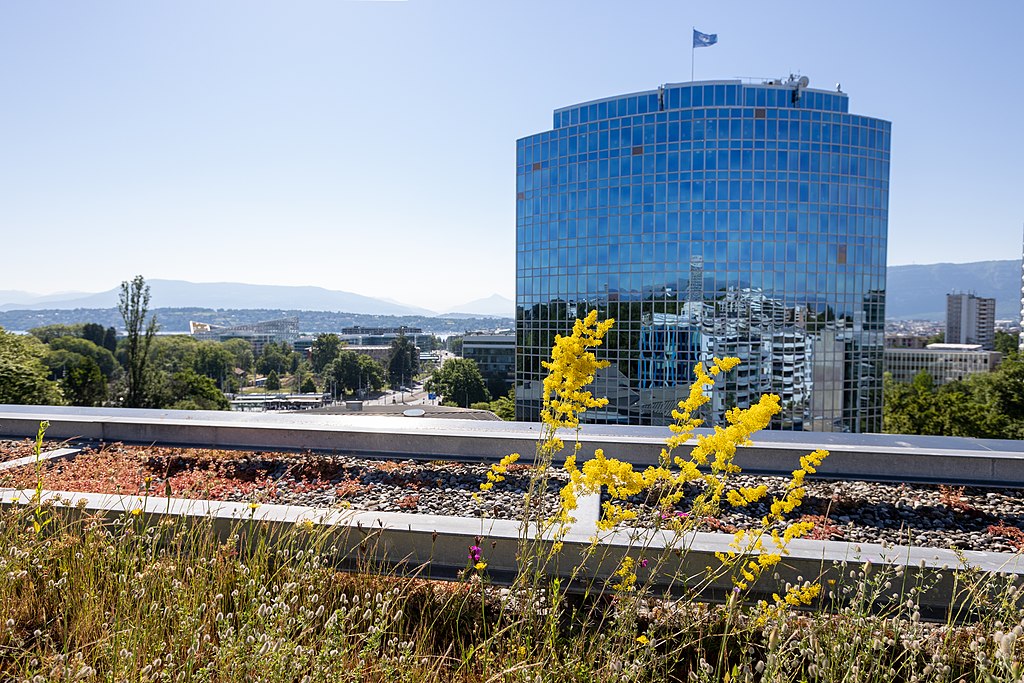Geneva, Switzerland — Yesterday, the Wikimedia Foundation, the nonprofit that hosts and supports Wikipedia and other Wikimedia projects, was again denied accreditation as a permanent observer to the World Intellectual Property Organization (WIPO) — the specialized United Nations (UN) agency that determines global policies on copyright, patents, and trademarks for its 193 Member States.
Observer status would enable the Wikimedia Foundation to participate and contribute to WIPO committees where intellectual property norms are set. For the fourth time, China opposed the Foundation’s request for observer status, based, once again, on false accusations that the Foundation is complicit in spreading disinformation. China misrepresented Wikipedia’s volunteer-driven policies and practices, all of which are rooted in accuracy and neutrality and help effectively counter misinformation and disinformation online.
As the host of the world’s largest online encyclopedia, the Wikimedia Foundation has a material interest and deep, practical expertise in many of the issues of interest being discussed at WIPO, including traditional knowledge, copyright, access to knowledge during times of crises, and Artificial Intelligence (AI). The Foundation’s presence at WIPO would help to ensure that the future of copyright truly reflects the global and diverse needs of the internet. Given that the content on Wikipedia and other Wikimedia projects also play an essential role in training almost every large language model (LLM), the Foundation can offer valuable recommendations and unique insights as WIPO strives to understand and respond to the impact of AI on intellectual property rights.
“In the age of AI, Wikipedia is at the forefront of global copyright debates. Our experience at the Wikimedia Foundation can help WIPO Member States achieve meaningful policy transformations to protect open knowledge and content creation for the public interest,” said Stephen LaPorte, General Counsel of the Wikimedia Foundation. “We regret that the Foundation has once again been denied the opportunity to participate as observers at WIPO, especially on the basis of erroneous statements. We call on WIPO leadership to find a solution that can resolve this deadlock. Until then, we will continue to seek opportunities to represent open knowledge and the public interest at WIPO and beyond. Since 2022, our consultative status at the UN Economic and Social Council (ECOSOC) has allowed us to actively contribute to global initiatives like the Global Digital Compact, and we hope to one day share our expertise with WIPO as well.”
For 21 years, the Wikimedia Foundation has continuously contributed to country-level legislative processes on intellectual property, stressing the importance of balanced copyright laws for hosting content on Wikipedia and any other free and open online spaces designed for the public interest. Moreover, in times of crisis, conflicts, and pandemics, Wikimedia projects provide critical and reliable information that must remain available and be protected in forums like WIPO.
The Foundation applied as a permanent observer to WIPO in 2020, 2021, 2023, and again this year, 2024. Our application was once again denied during WIPO’s General Assembly meeting based on a lack of consensus caused by China’s opposition. China has also previously blocked applications from Wikimedia affiliate groups and chapters seeking permanent or ad hoc observer status in WIPO. The Netherlands, as coordinator of the WIPO group of industrialized countries (which includes Australia, Israel, Japan, New Zealand, Norway, Turkey, the Holy See, and many European Union member states), the United States (US), France, Canada, Switzerland, and the United Kingdom (UK) expressed public support for the Foundation’s application. Supporting countries highlighted the Foundation’s valuable insights and experiences, demonstrating its involvement in global copyright issues and relevance to WIPO’s work.
The Wikimedia Foundation is an active and respected contributor and shaper of policies and practices concerning access to knowledge and information around the world. We hope that UN Member States and WIPO leadership will act to help advance global access to free knowledge by enabling the Foundation’s observer status application to move forward in the near future.
About the Wikimedia Foundation
The Wikimedia Foundation is the nonprofit organization that operates Wikipedia and other Wikimedia free knowledge projects. Our vision is a world in which every single human can freely share in the sum of all knowledge. We believe that everyone has the potential to contribute something to our shared knowledge and that everyone should be able to access that knowledge freely. We host Wikipedia and the Wikimedia projects, build software experiences for reading, contributing, and sharing Wikimedia content; support the volunteer communities and partners who make Wikimedia possible. The Wikimedia Foundation is a United States 501(c)(3) tax-exempt organization with offices in San Francisco, California, USA.
For media inquiries, please contact press@wikimedia.org

